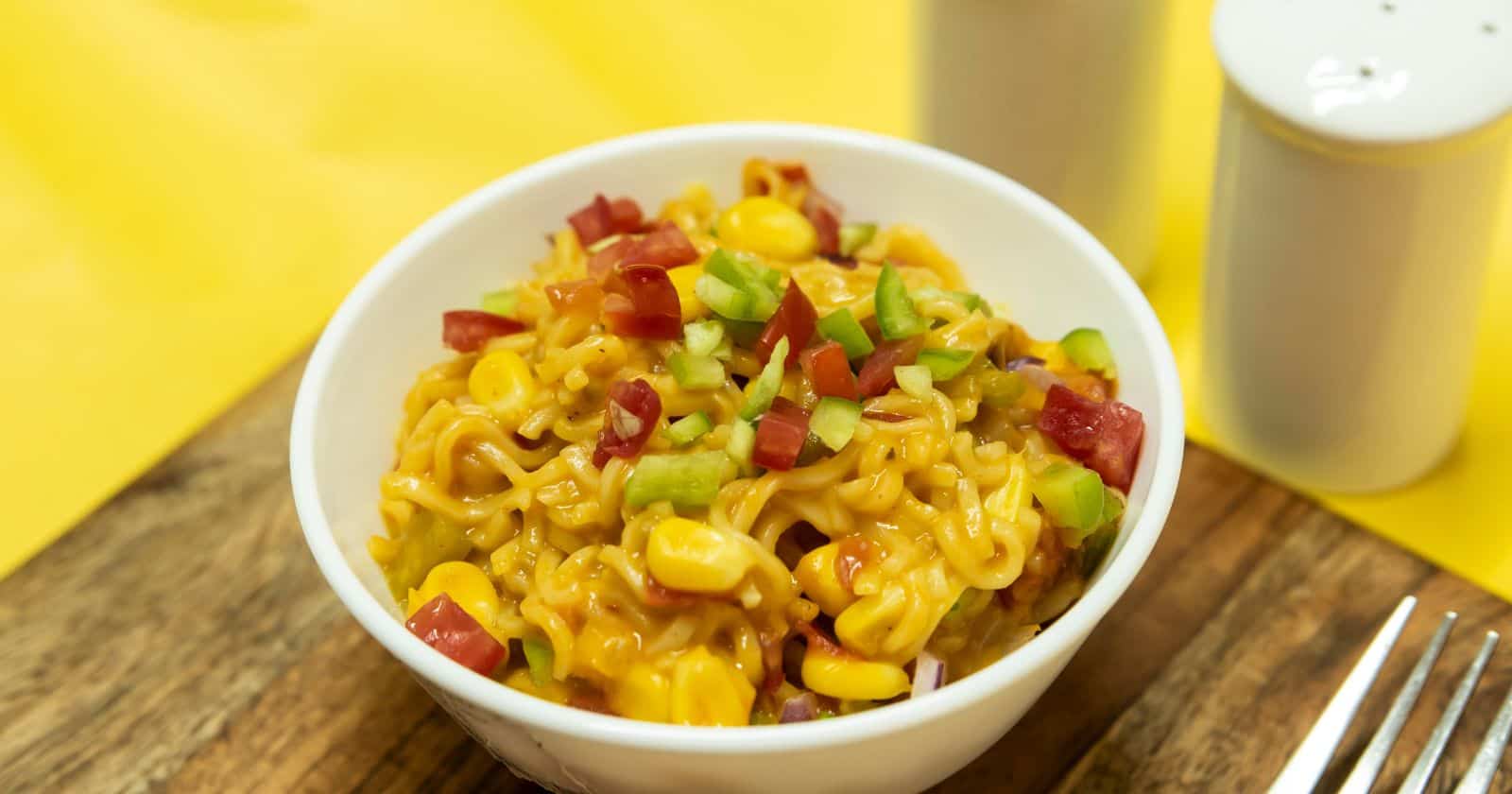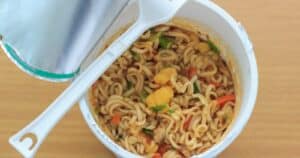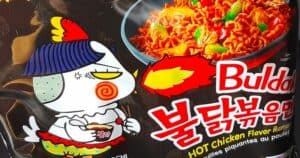Do you love indulging in a steaming hot bowl of ramen, only to have it wreak havoc on your digestive system later? If this tasty dish leaves you glued to the toilet, you’re not alone. Ramen may be delicious, but it contains several ingredients that can lead to the runs.
The main offenders are often the spicy seasonings, high sodium content, common allergens like gluten and MSG, and carb-heavy noodles. Eating ramen too quickly or in large amounts can also spark diarrhea. Not to worry – with a few simple precautions, you can still enjoy this noodle favorite without unwanted bathroom trips afterward!
In the following sections, we’ll explore the common reasons ramen causes diarrhea and provide helpful tips to customize your experience. You’ll learn how to balance your love of slurping up these savory noodles with a happy, healthy tummy. So grab a fork and get ready to dive into a diarrhea-free bowl of ramen!
It’s the Spice ! Capsaicin and Your Digestive System
Spicy ramen varieties like buldak are loaded with capsaicin, the compound that gives chili peppers their intensity. Consuming too much capsaicin can irritate your digestive tract, causing diarrhea and other uncomfortable symptoms.
While capsaicin shows promise for healing ulcers, remember that not all spicy foods contain this compound. It’s wise to enjoy fiery dishes in moderation and stay tuned into your body’s signals.
“Capsaicin can help heal ulcers but may also irritate your digestive system if you go overboard on the
spice level.”
Key Points on Capsaicin:
- Can inflame the digestive tract and lead to diarrhea
- May aid ulcer healing by increasing mucus production
- Found in chili peppers but not all spicy foods
- Eat spicy dishes in moderation
- Stop eating if you experience discomfort
Ramen noodles are often low in nutrients but high in sodium – an unhealthy combo if eaten regularly. For optimal health, enjoy a balanced diet with plenty of whole foods.
It’s the Sodium! High Salt Content and Dehydration
The sky-high sodium content in instant ramen can lead to dehydration and diarrhea when consumed in excess. Hypertonic dehydration may also occur from taking in fluids with high sodium levels.
While infections, food intolerances, and overindulging in fatty or spicy dishes can also cause diarrhea, a high sodium intake from ramen likely contributes to your digestive woes.
“To avoid dehydration and diarrhea, it’s important to consume high-sodium ramen in moderation and stay hydrated.”
- Ramen’s high sodium can lead to dehydration and diarrhea
- Hypertonic dehydration may happen from ingesting high-sodium fluids
- Drink plenty of water to stay hydrated
- Enjoy ramen moderately as part of a balanced diet
It Could Be the Ingredients: Gluten and MSG Sensitivity
Ramen flavors like buldak often contain gluten and MSG, both of which can cause issues for those with sensitivities.
Watch Out for Gluten:
- Found in wheat, barley and rye
- Triggers diarrhea, bloating, and abdominal pain in those with celiac disease or gluten sensitivity
- Choose gluten-free ramen if needed
MSG Symptoms:
- Headache, flushing, sweating after consuming MSG
- Some people are sensitive to this common flavor enhancer
- Opt for MSG-free ramen varieties
On top of this, ramen tends to be low in nutrients but loaded with sodium. Enjoy in moderation as part of an overall healthy diet.
FODMAPs + IBS: Can Ramen Be a Trigger?
For those with irritable bowel syndrome (IBS), ramen ingredients high in FODMAPs may exacerbate symptoms. FODMAPs are certain carbs that can spark digestive issues, and limiting them is a proven IBS therapy.
Wolfing down ramen too quickly or without proper chewing can also lead to diarrhea.
“To avoid digestive symptoms, those with IBS should choose low-FODMAP ramen options and focus on mindful eating habits.”
- Ramen contains high-FODMAP ingredients like wheat, onion and garlic
- Low-FODMAP diets improve IBS symptoms
- Eat ramen slowly and chew thoroughly to aid digestion
It’s Your Eating Habits: Overdoing It on Ramen
Ramen may be delicious, but it’s often low in nutrients and loaded with sodium. Eating it too quickly, in large quantities, or without proper chewing can result in diarrhea, bloating, and heartburn.
“Prevent digestive issues by avoiding overindulgence and eating ramen mindfully.”
- Eat slowly to avoid overconsumption
- Chew noodles thoroughly before swallowing
- Consider adding veggies or protein to balance nutrition
- Limit overall ramen intake, choose low-sodium options
Tips to Reduce Diarrhea When Eating Ramen
With a few simple adjustments, you can slurp up ramen without the unwanted side effects:
Take It Slow
Eat ramen at a leisurely pace and really savor the flavors. Taking your time aids digestion. Chew each tasty bite thoroughly before swallowing.
Stay Hydrated
Drink plenty of fluids throughout the day, especially water, to support digestive health and prevent diarrhea. Proper hydration is key.
Read Labels
Pick ramen with lower amounts of sodium and MSG to avoid potential sensitivity reactions. Check for gluten-free labeling if needed.
Enjoy in Moderation
Limit overall ramen intake as part of a balanced diet. Avoid overeating in one sitting to prevent digestive upset.
So whip up a bowl of ramen and slurp away – just be sure to tune into your body’s signals, customize your experience if needed, and enjoy those noodles in moderation. With a few simple precautions, you can satisfy your spicy ramen craving without the unwanted runs!





